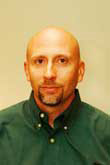But in this speech--where he failed to mention poverty even once--he referred to teachers over four dozen times. And these facts of language are telling in a time when many educators are challenging the call to increase teacher accountability, including a disturbing shift to value-added modeling (VAM).
The Los Angeles Times publishing teachers' names along with evaluations of those teachers based on VAM has fueled the debate. But the careful and detailed challenges to the many flaws with holding teachers accountable for student achievement are not shaking the Obama/Duncan persistence at placing the focus of school reform on teachers while ignoring the substantial evidence that the primary influences on student achievement are the conditions of children homes and communities.
Duncan's rhetorical strategy is becoming predictable since he makes compelling statements which he later contradicts in the policies he supports--and he wraps all of these talks in the language of civil rights to feed the perception that the Obama/Duncan educational plan embraces the continuing call for our society to address our social failures.
"Instead of holding only schools accountable we want to hold districts and states more accountable. No school is an island operating in isolation," for example, seems to place Duncan among those recognizing that school failures happen within social failures. But if we look carefully, and hear the rest of this speech, we see that the policies are entirely focused on teacher quality, teacher accountability, and teacher culpability.
"The big game-changer for us, however, in terms of both formula and competitive programs, revolves around the issue of teacher quality," Duncan confirmed, adding:
"Nothing is more important and nothing has a greater impact on the quality of education than the quality and skill of the person standing in the front of the class--and there is so much that needs to change in the way that America recruits, trains, supports and manages our teachers."
Yet, this claim is factually untrue. Teacher quality does matter, but teaching effectiveness is dwarfed by the lives of the children any teacher teaches.
Duncan further proves the willingness of the administration to treat schools as if they exist in social vacuums by making international comparisons: "Today, there are many different approaches to strengthening the teaching profession--both here in America and in countries that are outperforming us like Finland and Singapore."
But Duncan fails to acknowledge or address the disparity in childhood poverty between Finland and the U.S.
And then the crux of Duncan's focus on teachers is found here: "The truth is always hard to swallow but it can only make us better, stronger and smarter. That's what accountability is all about--facing the truth and taking responsibility and then taking action."
For the Obama/Duncan administration, then, accountability is about "the truth and taking responsibility and then taking action." But that may be more compelling in rhetoric than in reality, especially when we expose the truth against the claims and when we hold those calling for accountability accountable themselves.
In reality, when using test scores to hold people accountable is turned on those at the top who make such claims, the message somehow changes.
As Chancellor of DC schools, Michelle Rhee represents in reality what Duncan has been promoting through his speeches--accountability for teachers through rigid evaluation systems that lead to firing those teachers deemed weak.
But shortly after firing teachers, Rhee appeared unwilling to have the same accountability dynamic applied to her tenure over DC schools, as posted on the Schools Matter blog:
"According to Rhee and the Oligarchs who built her, one-shot tests appear to be perfectly valid when it come to firing teachers and making decisions on teacher pay and job security. However, when it comes to Rhee's own accountability to do what she identified in 2007 as her top priority as schools chief (to close the achievement gap), such tests are only isolated data points that should be looked at over time. You see, the gaps are not closing as Rhee's raging arrogance had led her to predict."
So here is one truth that is truly hard to swallow: Accountability built on tests is appropriate for teachers, but not for a chancellor who creates that same dynamic for those teachers.
(Note: You can view every article as one long page if you sign up as an Advocate Member, or higher).





